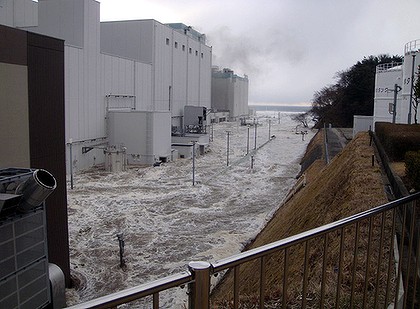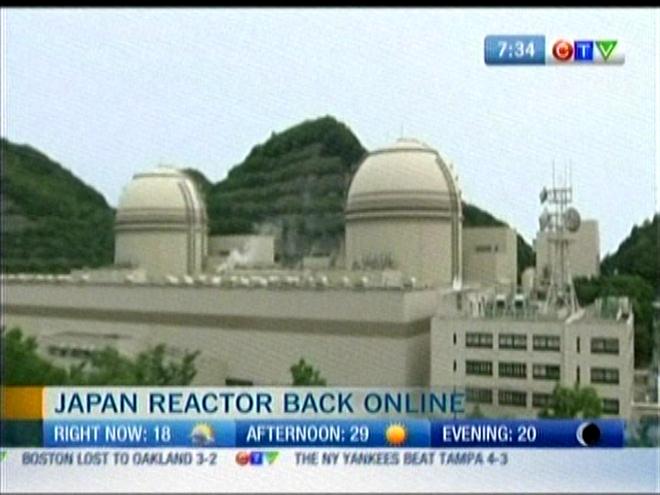This is an eerie anniversary.
Thirty years ago today, reactor 4 of the Chernobyl nuclear power plant blew to smithereens.
It’s really hard to assign blame.
Was it the designers who came up with a reactor design that was fundamentally unstable at low power?
Was it the bureaucrats who, in the secretive Soviet polie state, made it hard if not impossible for operators at one facility to learn from incidents elsewhere?
Was it the engineers at Chernobyl who, concerned about the consequences of a total loss of power at the station, tried to test a procedure that would have kept control systems and the all-important coolant pumps running using waste heat during an emergency shutdown, while the Diesel generators kicked in?
Was it the Kiev electricity network operator who asked Chernobyl to keep reactor 4 online for a little longer, thus pushing the planned test into the late night?
Was it the control room operator who ultimately pushed the button that initiated an emergency shutdown?
And the list continues. Many of the people we could blame didn’t stick around long enough: they died, after participating in often heroic efforts to avert an even greater disaster, and receiving lethal doses of radiation.
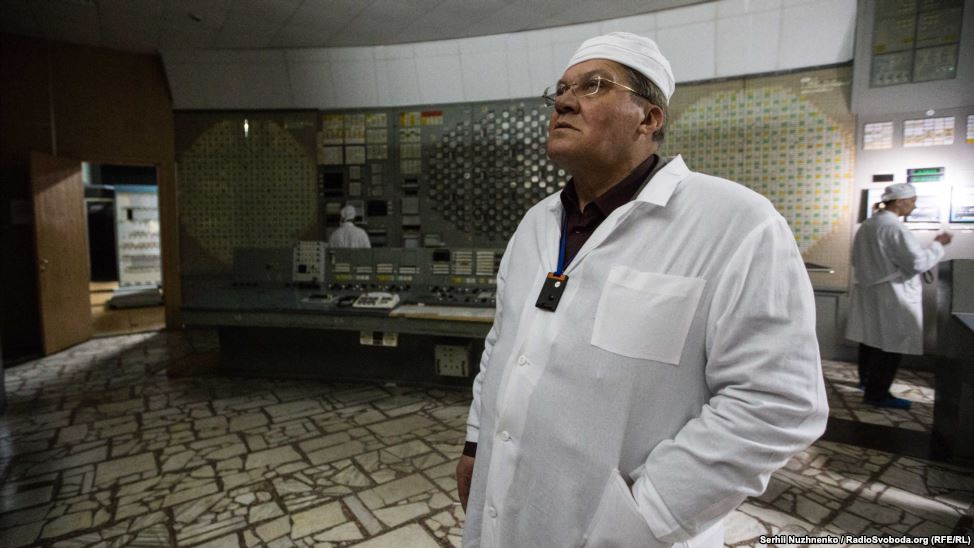
Some lived. This photo shows Arkady Uskov, who suffered severe radiation burns 30 years ago as he helped save colleagues. He, along with a few other people, recently revisited the control room of reactor 4, and were photographed there by Radio Free Europe. (Sadly, the photos are badly mislabeled by someone who didn’t know that “Arcadia Uskova” would be the name of a female; or, in this case, the genitive case of the male name Arkady Uskov. Thus I also cannot tell if “Oleksandr Cheranov”, whose name I cannot find anywhere else in the literature of Chernobyl, was a real person or just another RFE misprint.)
Surprisingly, the control room, which looks like a set of props from a Cold War era science fiction movie, is still partially alive. The lit panels, I suspect, must be either part of the monitoring effort or communications equipment.
It must have been an uncanny feeling for these aging engineers to be back at the scene, 30 years later, contemplating what took place that night.
Incidentally, nuclear power remains by far the safest in the world. Per unit of energy produced, it is dozens of times safer than hydroelectricity; a hundred times safer than natural gas; and a whopping four thousand times safer than coal. And yes, this includes the additional approximately 4,000 premature deaths (UN estimate) as a result of Chernobyl’s fallout. Nor was Chernobyl the deadliest accident related to power generation; that title belongs to China’s Banqiao Dam, the failure of which claimed 171,000 lives back in 1975.
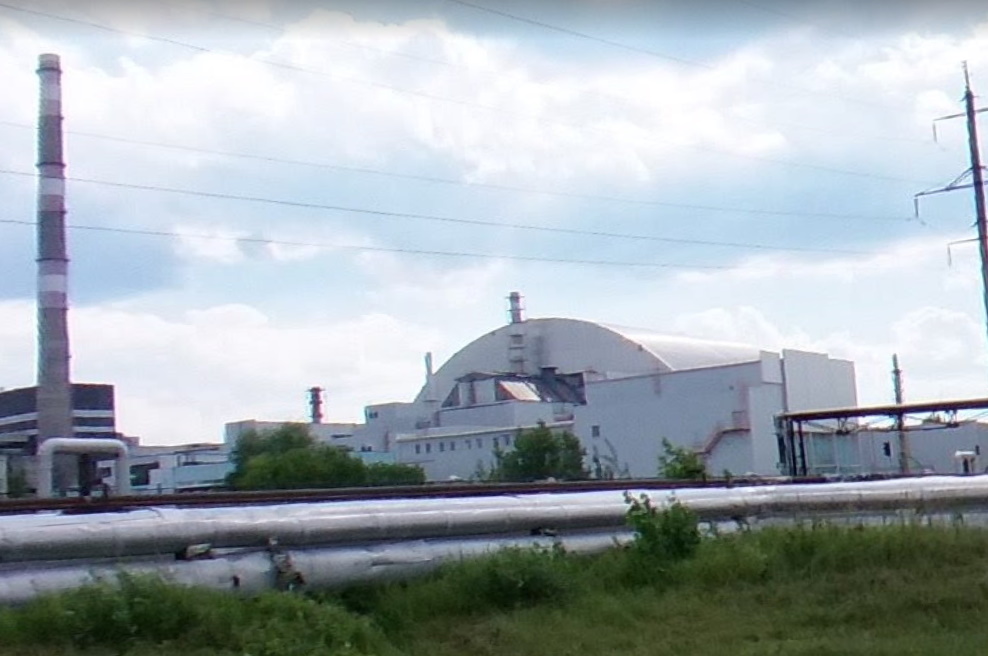
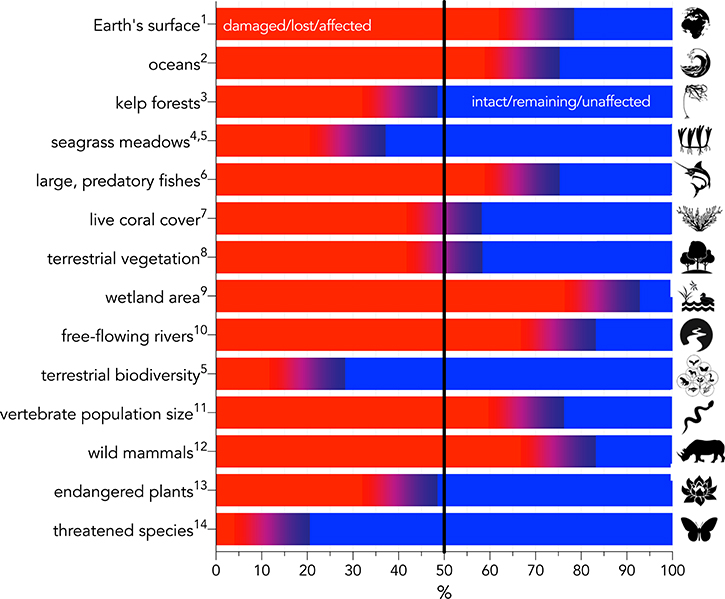
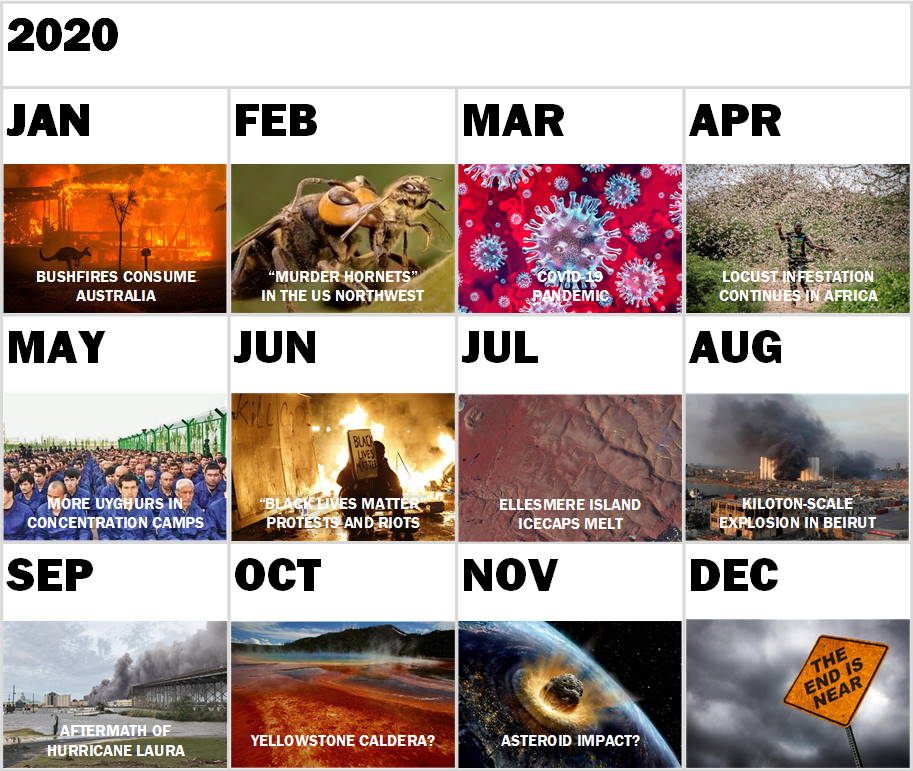
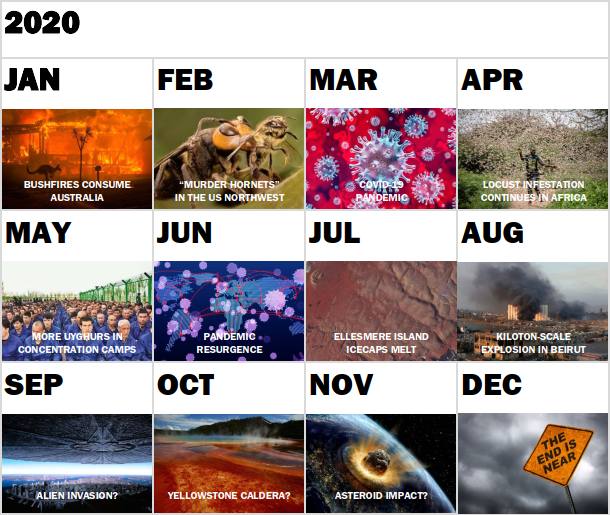

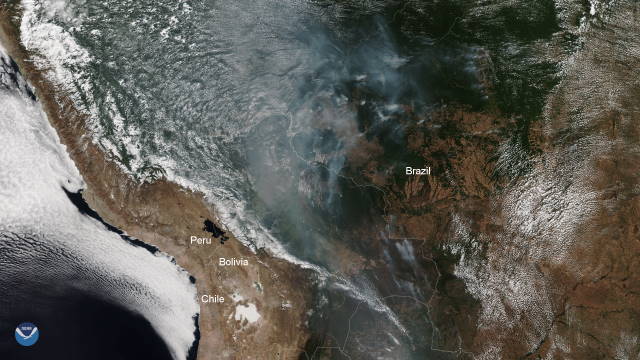
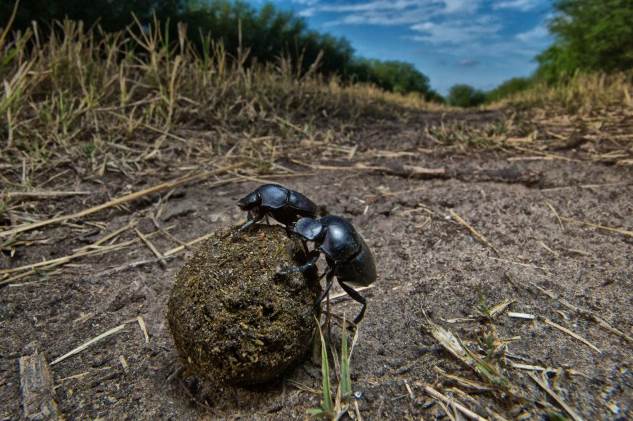


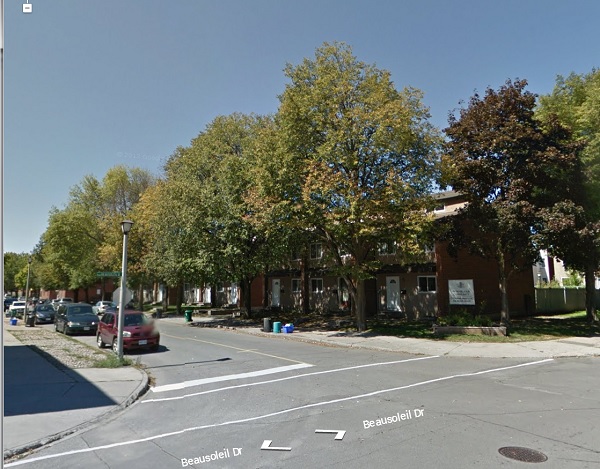

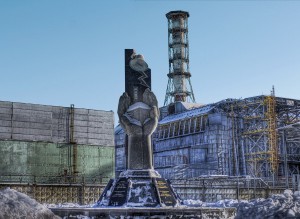 Twenty seven years ago tonight, an ill-prepared overnight crew at reactor #4 at the Chernobyl nuclear power station in the Ukraine began an unauthorized experiment, originally scheduled to run during the day, and designed to test how much power the reactor was able to supply while it was shutting down, keeping emergency systems powered while waiting for backup generators to kick in. Trouble is, this particular reactor type was known to have instabilities at low power even at the best of times. And these were not the best of times: the reactor was operated by an inexperienced crew and was suffering from “poisoning” by neutron-absorbing xenon gas due to prolonged low-power operations earlier and during the preparation for the test.
Twenty seven years ago tonight, an ill-prepared overnight crew at reactor #4 at the Chernobyl nuclear power station in the Ukraine began an unauthorized experiment, originally scheduled to run during the day, and designed to test how much power the reactor was able to supply while it was shutting down, keeping emergency systems powered while waiting for backup generators to kick in. Trouble is, this particular reactor type was known to have instabilities at low power even at the best of times. And these were not the best of times: the reactor was operated by an inexperienced crew and was suffering from “poisoning” by neutron-absorbing xenon gas due to prolonged low-power operations earlier and during the preparation for the test.